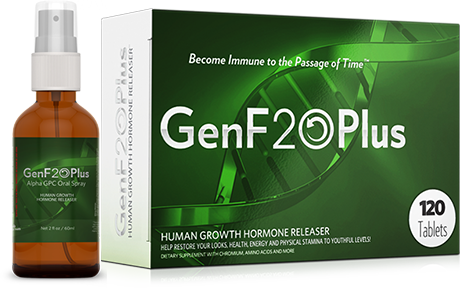Why Do We Age?
The "Fountain of Youth" is an old age term that alludes to immortality, used in different forms of literature and folk tales for as long as we can remember. The fountain of youth's classification as myth has been challenged from time to time with expeditions of adventurers that have claimed to have finally found the location of this fountain. Anyway, this recurring symbol of eternal youth in most forms of literature and art verifies man's innate affinity with immortality.
In our contemporary setting, this longing for immortality is almost within humankind's grasp with the promise of better technologies and sciences soon. But to completely grasp and understand the means of acquiring eternal life or a very long life span, one must first understand the aging process. This quest has kept many brilliant scientists hell-bent on searching for clues and theories that may answer such relentless query.
Scientists were able to come up with a term that refers to the human aging process - senescence. This term refers to a degeneration of function that manifests itself as people age and is thought to be resultant biochemical deregulation that is of a natural component of life.
Senescence effects vary among different animal species. Let's consider the following comparison of a bat and a rodent: both of these animals are classified as mammals. Both are roughly the same size and shape. However, a bat generally lives longer than a rodent. Bats can live up to thirty years, while rodents usually have a life span of only two to three years. Some animal species, such as lobsters, rockfish, and turtles, display a certain trait known as negligible senescence. This trait enables these animal species to live longer compared to other species. Some can even live for an unbelievable life span of two hundred years.
Findings appear to indicate that this longevity is a result of genetic and evolutionary factors. Scientists find it hard to assimilate this kind of survival to humans, and the reason behind it is relatively simple: humans live under a completely different environment compared to those animals that possess the negligible senescence trait.
The best human beings can do for now is first to determine what factors fuel the aging process. And then to address these factors accordingly. One of these factors behind aging is stress. The dynamics of stress tell us that the physical and mental abuse our bodies are subjected to daily can ultimately lead to cell damage.
Another determining factor in aging is the degeneration of the hypothalamus, which is a gland that resides in your head. The hypothalamus is solely responsible for sending the "traffic" of various hormones to other organs. As we age, the hypothalamus degenerates and inaccurately releases incorrect amounts of hormone to other glands in the human body, leading to imbalanced hormone levels causing damage to tissues.
External environmental factors are also some of the reasons behind the aging process. Pollution, contaminants, radiation, in conjunction with self-induced stress, and poor nutrition, inflict substantial damage on human cells, once exposed to such harmful external factors. Cells are critical to the aging process because they contain information for the human body's development. When a cell reproduces or divides itself, it makes sure that the new cell is of the same level as the previous cell of its origination. If that last cell received any slightest form of damage from the previously mentioned factors, it would spawn new cells that possess the same damaged information. This will lead to a new string of degenerated cells which leads to what is commonly known as the aging process.
Of all the scientific theories dealing with the aging process, the Free Radical Theory is the most popular one among contemporary health-conscious individuals. This theory states that extremely reactive chemicals, which the term free radicals refer to, are responsible for causing damage to the human body's tissues. This is not entirely true, as these free radicals are not completely bad for the human body. They do serve numerous purposes for the body's development. But oddly enough, the free radicals can reproduce themselves in excessive amounts that are damaging to the human body, especially to the tissues. Free radicals contain an extra electron, which makes them more capable of stealing electrons from other molecules, which they tend to do frequently. This act subsequently leads to a dangerous cycle that can burnout the cells from constantly repairing damaged molecules.
While these various theories try to decipher the process of aging, specific medical solutions are thought to combat the inevitable aging process, such as taking Vitamins C and E supplements to combat stress and balance out the damage induced by free radicals in the body. Another effective method is to eat fewer junk foods and substituting it with healthier food choices such as fruits and vegetables.
One means to combat the toll of aging today is through the consumption of high quality GenF20 Plus™ HGH or Human Growth Hormone precursors. The GenF20 Plus™ HGH supplement can help increase energy levels in the body by allowing the body to release it's own naturally produced HGH. This also helps to improve brain, vision, and immune function, and lower cholesterol. These are some of the capabilities of the GenF20 Plus™ HGH supplement in controlling the aging process, but nonetheless the GenF20 Plus™ supplement is, by far, the most advanced dietary supplement that can help stem the process of aging.



